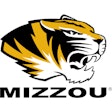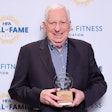|
Copyright 2013 Charleston Newspapers Charleston Daily Mail (West Virginia) |
|
October 25, 2013, Friday
|
|
SPORTS; Pg. P1B
|
|
910 words
|
| Luck prepares for role with CFP |
|
Mike Casazza
|
|
MANHATTAN, Kan. - Oliver Luck is not yet doing the important work on the College Football Playoff's selection committee, but he has started training. A week ago, West Virginia's athletic director opened a spot in his schedule so he could watch his son's youth soccer match. Luck then hurried home to watch ESPN's Thursday night college football game between Miami and North Carolina. "I hadn't seen Miami play this year," Luck said. Mind you, that was eight weeks and six games into the season and Luck still hadn't seen the team that's now ranked No. 7 in the country. The Hurricanes might be two weeks and one win against Florida State away from being a very real national championship contender. All Luck really knew was The U hadn't lost, but had just labored on the road against the 1-5 Tar Heels. Miami had 80 snaps and 556 yards of offense, but needed a fourth quarter drive to win 27-23. Not the best first impression of a team that, weeks earlier, beat what was then a healthy top-10 Florida. Turn on the television and watch the Gators Saturday and that's not as impressive. Florida is just 4-3 and 3-2 in the Southeastern Conference, but has been ravaged by injuries to players who made them so good so early in the season. It's hard to track that sort of stuff with Luck's perpetual schedule as the head of the expansive athletic department, to say nothing of being the father of one of the NFL's finest quarterbacks. It's nevertheless the reality, and it's one that he and four other athletic directors on the 13-person committee must confront and conquer. "I assume almost everyone on the committee's first concern was, 'Do I have the time to do it?' " Luck said. "I think everyone on this committee wants to be very fair to every team and that means watching a lot of college football. "That was the biggest concern I had before I said yes. After talking to some former basketball selection committee members, I got a sense for their time constraints and responsibilities. But the technology makes it easier, unlike basketball. It's tough to shorten a basketball game. You can shorten a football game to 20, 25 minutes." So Luck can wedge a few games into a few hours. Even if the does that for a few days, he has only adequately covered a handful of teams. The misconception here is that he's interested in the 125 teams in the Football bowl Subdivision. No one should be because the number of teams who are even reasonable long shots for a national title is much, much smaller. Luck said he'd start in the summer with a top 25, which means beginning with 40 or 50 teams. If what he hears is true, he won't even have to concern himself that many teams. "The plan right now, I think, is each of the sitting ADs will be assigned to a particular conference and they're going to be the subject matter experts there," Luck said. "My understanding is I wouldn't be assigned the Big 12, but maybe the Pac-12 and I'd become on expert on that and maybe Conference USA. "Then as we go into discussions, if there is a question about Oregon, Oregon State, Stanford, whatever, or someone in C-USA, I'd be the one to address it." The grand responsibility has been whittled. The committee members don't have to watch full games. They don't have to cover the entire nation. When they have questions or are innocently unaware, they can defer to a designated expert. Every member is going to have to make tough decisions, though, which explains why the committee includes a former Secretary of State, a former superintendent of the United States Air Force Academy, a former NCAA executive vice president who basically ran the NCAA Tournament's selection process and a former conference commissioner who rebuilt the Big East before his successor let it fall to pieces. They're all going to have to decide between Nos. 4 and 5, Nos. 12 and 13, Nos. 25 and 26 and those games are played on paper and not on the field. There are data points the committee will use and value, but it sounds like it will allow for individuality. It sounds like it will let the members come up with their own answers their own way. It sounds like they'll create a mosaic where a variety of people do their work differently and reach a conclusion. Luck has some preferences, things that have to be included in the process, like schedule strength, head-to-head results, scoring offense and scoring defense, but he'll value other things that others might not. Turnover ratio, scoring differential and more particular measures of a team's success will be atop his list. Some of those elements may soon be weighted or devalued, and the committee meets next month in Washington, D.C., to start to cement things. Maybe the biggest item, though, won't concern how the teams are picked, but rather who is picking them. There's still a big question about the constitution of this committee. "The issue is when a member should recuse himself or herself because of being 'directly associated' with a school," Luck said. "We need to determine what it means to be directly associated. "I have a direct association with West Virginia, but think of all the coaches and all the administrators who have been at other places. They may have spouses or siblings or offspring who are working at another university. Are they directly associated? That's something we have to determine because it's an important variable." Contact sportswriter Mike Casazza at [email protected] or 304-319-1142. His blog is at blogs.dailymail.com/wvu. |
|
October 28, 2013
|
Terms and Conditions Privacy Policy



































